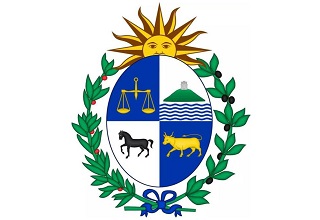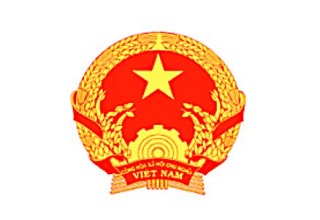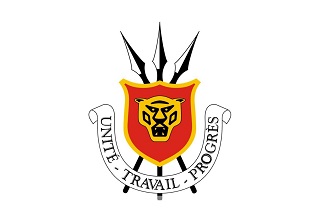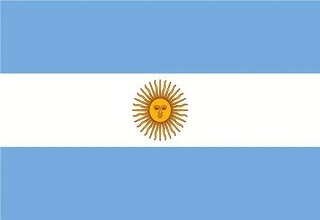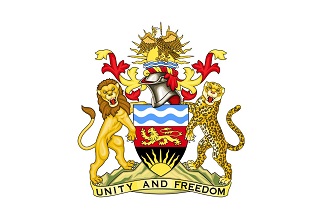Regarding the Inspection and Quarantine Requirements for Saffron from Bulgaria to China
According to the regulations of the Chinese Customs and the Bulgarian Ministry of Agriculture and Food on the plant quarantine requirements for the export of Bulgarian saffron to China, from now on, the import of Bulgarian saffron that meets the following relevant requirements is allowed.
I. Inspection and quarantine basis
(I) "Biosafety Law of the People's Republic of China";
(II) "Law of the People's Republic of China on Entry and Exit Animal and Plant Quarantine" and its implementing regulations;
(III) "Food Safety Law of the People's Republic of China" and its implementing regulations;
(IV) "Measures for the Supervision and Administration of Entry and Exit Chinese Medicinal Materials Quarantine";
(V) "Protocol on Plant Quarantine Requirements for the Export of Bulgarian Saffron to China between the General Administration of Customs of the People's Republic of China and the Bulgarian Ministry of Agriculture and Food".
II. Names of commodities allowed to enter the country
The saffron in this announcement refers to the dried stigma of Crocus sativus L. (scientific name, English name Saffron) of the Iridaceae family.
III. Permitted origins
Bulgarian saffron producing areas
IV. Enterprise Registration
The planting bases and processing and packaging plants for exporting safflower to China must be reviewed by the Bulgarian Ministry of Agriculture and Food and approved for registration by the Chinese Customs. The registration information should include the name, address and registration number so that the export goods can be accurately traced when they do not comply with the relevant provisions of this announcement. Before starting trade, the Bulgarian Ministry of Agriculture and Food should provide the Chinese Customs with a registration list, which will be published on the website of the General Administration of Customs after review and approval by the Chinese Customs.
V. List of quarantine pests of concern to the Chinese Customs
1. Heterobostrychus aequalis
2. Prostephanus truncates
3. Trogoderma granarium
4. Ditylenchus dipsaci
5. Pratylenchus crenatus
6. Meloidogyne brevicauda
7. Myzus persicae
8. Lepidium draba
9. Burkholderia gladioli
VI. Pre-export management
(I) Requirements for planting bases.
1. Planting bases for saffron exported to China should establish a sound quality management system and traceability management system under the supervision of the Bulgarian Ministry of Agriculture and Food, implement good agricultural practices (GAP), maintain planting sanitation conditions, such as no pollution sources affecting saffron production in the surrounding area, and timely clean up plant diseased residues; and implement integrated pest management (IPM), including pest monitoring surveys, physical, chemical or biological control, and agricultural operations and other control measures.
2. Planting bases for saffron exported to China should carry out pest monitoring and integrated management for quarantine pests of concern to Chinese Customs under the supervision of the Bulgarian Ministry of Agriculture and Food. Pest monitoring and control should be carried out under the guidance of professional technicians. Technicians should receive training from the Bulgarian Ministry of Agriculture and Food or its authorized institutions.
3. The planting bases of saffron exported to China should keep records of pest monitoring and control for at least two years and provide them to the Chinese Customs upon request. Pest monitoring and control records should at least include detailed information such as the monitoring time, the names of the pests found, the control measures taken, and the date of use, active ingredients and concentration of the chemicals used.
(II) Management of processing and packaging plants.
1. The processing, packaging, storage and shipment of saffron exported to China must be carried out under the quarantine supervision of the Bulgarian Ministry of Agriculture and Food or its authorized officials.
2. The processing and packaging plants of saffron exported to China should be clean and hygienic, with hardened floors and raw material fields and finished product warehouses.
3. The storage, processing, packaging, storage and other functional areas of saffron exported to China are relatively independent and reasonably laid out, and isolation measures are taken from the living areas and there is an appropriate distance.
4. During the processing of saffron exported to China, it should go through processes such as picking, screening and drying to ensure that it does not carry soil, weed seeds or other pests.
5. The processing and packaging factory should establish a traceability system to ensure that the information of the processing and packaging date, the name of the source planting base, the export date, the export quantity, the importing country, the transport vehicle or the container number, etc. can be traced back to the saffron exported to China.
(III) Packaging requirements.
1. The packaging materials should be clean, hygienic, unused, and meet the relevant plant quarantine requirements of China. If wooden packaging is used, it must comply with the requirements of International Standard for Phytosanitary Measures No. 15 (ISPM 15).
2. Each packaging box should be marked with traceable information such as the product name, country, origin, name of the planting base or its registration number, name of the processing and packaging factory or its registration number in Chinese or English. Each packaging box should be marked with "输往中华人民共和国" and "Exported to the People’s Republic of China" in Chinese and English.
3. The transport vehicle or container loaded with saffron exported to China must be checked for good sanitary conditions during shipment. The transport vehicle or container should be sealed, and its seal should be intact when arriving at the Chinese entry port.
(IV) Pre-export inspection and quarantine.
1. The Bulgarian Ministry of Agriculture and Food shall implement pre-export quarantine for Saffrons exported to China to ensure that they do not carry quarantine pests of concern to China Customs.
2. If quarantine pests, plant residues or soil of concern to China Customs are found, the entire batch of goods shall not be exported to China.
(V) Requirements for phytosanitary certificates.
1. For goods that have passed quarantine, the Bulgarian Ministry of Agriculture and Food shall issue a phytosanitary certificate in accordance with the International Standard for Phytosanitary Measures No. 12 (ISPM 12), indicating the name of the planting base and the processing and packaging factory or its registration number and the container number, and fill in the following additional statement: "This consignment complies with the requirements specified in the Protocol of Phytosanitary Requirements for Export of Saffrons from Bulgaria to China, and is free from quarantine pests of concern to China."
2. Before the project starts, the Bulgarian Ministry of Agriculture and Food shall provide a sample of the phytosanitary certificate to China Customs for confirmation and filing.
VII. Entry Inspection and Quarantine and Disposal of Disqualified Products
When imported saffron arrives at the Chinese entry port, the Chinese Customs will implement inspection and quarantine in accordance with the following requirements.
(I) Verification of relevant certificates and labels.
1. Verify whether the plant quarantine certificate complies with the provisions of Article 6, Item (V) of this Announcement.
2. Verify whether the labels on the packaging boxes and pallets comply with the provisions of Article 6, Item (III) of this Announcement.
(II) Entry Inspection and Quarantine.
In accordance with relevant laws, administrative regulations, rules, etc., imported saffron shall be subject to inspection and quarantine. If it passes the inspection and quarantine, it shall be allowed to enter the country.
(III) Disposal of Disqualified Products.
1. If it is found to come from an unregistered planting base or processing and packaging factory, the batch of goods shall not be allowed to enter the country.
2. If quarantine pests of concern to the Chinese Customs or other quarantine pests are found, or soil, plant residues, etc. are found, the batch of goods shall be returned, destroyed or treated for pests.
3. If any non-compliance with Chinese food and drug safety laws and regulations, national standards and requirements is found, the batch of goods will be returned or destroyed.
4. If the above non-compliance is found, China Customs will immediately notify the Bulgarian Ministry of Agriculture and Food and suspend the import of saffron from relevant planting bases and processing and packaging plants as appropriate. The Bulgarian Ministry of Agriculture and Food should find out the reasons for the non-compliance and take improvement measures to prevent similar situations from happening again. China Customs will decide whether to cancel the suspension measures based on the rectification results of the Bulgarian Ministry of Agriculture and Food.
GACC
